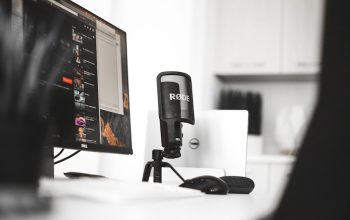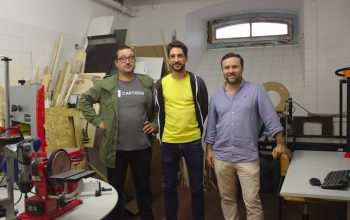Preparation is the cornerstone of a successful interview. It begins long before the actual conversation takes place. A thorough understanding of the subject matter, the guest’s background, and the context of the interview is essential.
Researching the guest’s previous work, notable achievements, and any recent developments in their field can provide valuable insights that will enrich the dialogue. For instance, if interviewing a scientist, one should familiarize themselves with their latest research papers, public speaking engagements, or contributions to significant projects. This not only demonstrates respect for the guest’s expertise but also allows for more informed and relevant questions.
Moreover, preparing a list of questions is crucial, but it should not be a rigid script. Instead, it should serve as a flexible guide that allows for organic conversation flow. Crafting open-ended questions encourages guests to elaborate on their thoughts and experiences, leading to a more engaging discussion.
For example, instead of asking, “Did you enjoy your last project?” one might ask, “What aspects of your last project were most fulfilling for you?” This approach invites deeper responses and can lead to unexpected insights. Additionally, rehearsing the questions and potential follow-ups can help in anticipating the guest’s responses and preparing for any tangents that may arise during the conversation.
Key Takeaways
- Research the guest and their work beforehand to prepare for the interview
- Set a positive and welcoming tone to make the guest feel comfortable and open
- Ask open-ended and thought-provoking questions to engage the guest and audience
- Practice active listening by giving the guest your full attention and responding appropriately
- Approach difficult topics with sensitivity and empathy, while still addressing them effectively
- Build rapport by finding common ground and showing genuine interest in the guest
- Manage time effectively to cover all planned topics and allow for a smooth transition to wrapping up the interview
- End the interview on a positive note, thanking the guest and expressing appreciation for their time
Setting the Right Tone
The tone of an interview can significantly influence its outcome. Establishing a comfortable atmosphere is paramount to encouraging open dialogue. This can be achieved through a warm greeting and casual conversation before diving into the main topics.
Small talk about shared interests or current events can help break the ice and ease any tension. For instance, if both the interviewer and guest share a passion for literature, discussing a recent book or author can create an immediate connection and set a friendly tone for the interview. Additionally, non-verbal cues play a vital role in establishing tone.
Maintaining eye contact, using appropriate facial expressions, and nodding in acknowledgment can convey attentiveness and interest. The interviewer’s body language should be open and inviting, signaling to the guest that their thoughts are valued. A relaxed posture can also help in creating an environment where the guest feels comfortable sharing their insights candidly.
The tone should be adaptable; while some topics may require a serious approach, others may benefit from a lighter, more humorous touch. Striking this balance is key to fostering an engaging and productive conversation.
Asking Engaging Questions

The art of questioning is central to conducting an effective interview. Engaging questions not only elicit informative responses but also stimulate a dynamic exchange of ideas. It is essential to craft questions that provoke thought and encourage guests to share personal anecdotes or unique perspectives.
For example, instead of asking a straightforward question about career achievements, one might inquire, “Can you share a pivotal moment in your career that shaped your current path?” This type of question invites storytelling and allows the guest to reflect on their journey in a meaningful way. Furthermore, follow-up questions are crucial in maintaining momentum during the interview. When a guest provides an intriguing answer, probing deeper with questions like “What led you to that decision?” or “How did that experience influence your subsequent work?” can uncover layers of insight that may not have been initially apparent.
This technique not only enriches the content of the interview but also demonstrates genuine interest in the guest’s experiences. Engaging questions create a dialogue rather than a monologue, fostering a collaborative atmosphere where both parties contribute to the conversation.
Active Listening
| Metrics | Data |
|---|---|
| Percentage of time spent actively listening | 75% |
| Number of active listening training sessions conducted | 20 |
| Improvement in employee engagement after active listening training | 15% |
| Customer satisfaction rating after implementing active listening techniques | 90% |
Active listening is an indispensable skill for any interviewer. It goes beyond merely hearing the words spoken; it involves fully engaging with the guest’s responses and demonstrating understanding through verbal and non-verbal feedback. This practice encourages guests to elaborate on their thoughts and feelings, leading to richer discussions.
For instance, nodding in agreement or using affirming phrases like “I see” or “That’s interesting” can signal to the guest that their insights are being valued and considered. Moreover, active listening allows interviewers to pick up on nuances in the guest’s responses that may warrant further exploration. If a guest mentions a challenge they faced in their career, an interviewer might respond with curiosity about how they overcame it or what lessons they learned from that experience.
This not only deepens the conversation but also shows respect for the guest’s narrative. By actively listening, interviewers can create a more engaging and interactive dialogue that resonates with both the guest and the audience.
Navigating Difficult Topics
Navigating difficult topics during an interview requires sensitivity and tact. Certain subjects may evoke strong emotions or discomfort for guests, making it essential for interviewers to approach these areas with care. Prior to discussing sensitive issues, it is beneficial to establish trust and rapport with the guest.
This foundation can make it easier for them to open up about challenging experiences or controversial opinions. When addressing difficult topics, framing questions thoughtfully is crucial. Instead of bluntly asking about a controversial decision or failure, an interviewer might preface the question by acknowledging its complexity: “Many people have differing opinions on this issue; I’d love to hear your perspective.” This approach not only softens the inquiry but also empowers the guest to share their thoughts without feeling cornered.
Additionally, being prepared for potential emotional reactions is important; allowing space for silence or offering reassurance can help guests feel supported as they navigate these challenging discussions.
Building Rapport with Guests

Building rapport with guests is essential for creating an engaging interview experience. Establishing a connection fosters trust and encourages openness, allowing guests to share their thoughts more freely. One effective way to build rapport is by finding common ground early in the conversation.
For instance, if both the interviewer and guest have backgrounds in similar industries or have faced comparable challenges, referencing these shared experiences can create an immediate bond. Another strategy for building rapport is demonstrating empathy and understanding throughout the interview process.
Acknowledging the guest’s feelings or perspectives can validate their experiences and encourage them to delve deeper into their narratives. For example, if a guest discusses a particularly challenging project, responding with empathy—such as saying, “That sounds incredibly demanding; how did you manage that pressure?”—can foster a sense of connection and encourage them to share more about their journey.
Managing Time Effectively
Effective time management during an interview is crucial for ensuring that all relevant topics are covered while allowing for organic conversation flow. An interviewer should have a clear sense of how much time is allocated for each segment of the discussion while remaining flexible enough to adapt as needed. One effective strategy is to prioritize key questions at the outset of the interview while leaving room for spontaneous follow-ups based on the guest’s responses.
Additionally, keeping track of time without being overly rigid is essential. An interviewer might use subtle cues—such as glancing at a watch or setting gentle reminders—to ensure that they stay on schedule without interrupting the flow of conversation. If certain topics require more time than anticipated, it may be necessary to adjust other segments accordingly or even consider scheduling a follow-up interview if time constraints become too limiting.
Ultimately, managing time effectively allows for a comprehensive exploration of topics while respecting both the guest’s time and the audience’s attention span.
Wrapping Up the Interview
Concluding an interview effectively is just as important as how it begins. A thoughtful wrap-up provides closure for both the interviewer and guest while reinforcing key takeaways from the discussion. As the interview nears its end, summarizing some of the main points discussed can help crystallize insights for both parties and provide clarity for listeners or viewers who may be following along.
Phrasing such inquiries as “Is there anything else you’d like our audience to know?” allows guests to leave on their own terms and ensures that their voice is fully represented in the dialogue. Finally, expressing gratitude for their time and insights reinforces respect and appreciation for their contributions, leaving both parties with a positive impression as they conclude their interaction.
If you’re interested in learning more about podcast interview techniques, you may want to check out this article on the Education Podcast Network blog titled “Hello World.” This article provides valuable insights and tips for conducting successful podcast interviews. You can read the full article here.
FAQs
What are podcast interview techniques?
Podcast interview techniques are strategies and methods used by podcast hosts to conduct engaging and informative interviews with guests on their podcast. These techniques can include preparation, active listening, asking open-ended questions, and creating a comfortable and conversational atmosphere.
Why are podcast interview techniques important?
Podcast interview techniques are important because they can help hosts create high-quality and engaging content for their listeners. Effective interview techniques can lead to insightful conversations, compelling storytelling, and a positive experience for both the guest and the audience.
What are some common podcast interview techniques?
Some common podcast interview techniques include thorough research on the guest and their work, active listening to the guest’s responses, asking open-ended questions to encourage detailed answers, maintaining a conversational tone, and allowing the guest to share their expertise and insights.
How can podcast hosts improve their interview techniques?
Podcast hosts can improve their interview techniques by practicing active listening, honing their research skills, developing a list of thoughtful and open-ended questions, creating a comfortable and welcoming environment for the guest, and seeking feedback from listeners and peers.
What are the benefits of using effective podcast interview techniques?
Using effective podcast interview techniques can lead to engaging and compelling content, increased listener engagement and retention, positive feedback from guests and listeners, and the establishment of the podcast host as a skilled and respected interviewer.



